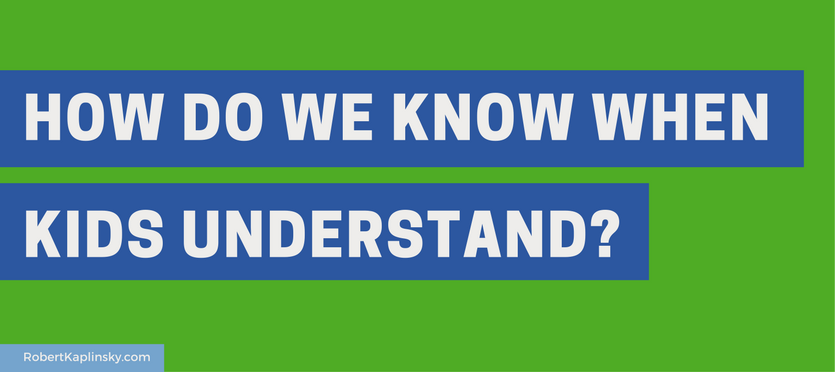You’ve probably heard that there are tournaments for board games such as Scrabble. These winners are often held in high esteem for their intelligence, knowledge, and strategic thinking which they use to propel themselves to victory. They are thought to be experts of the languages they use… but I wonder if that is always the case.
Consider the story of Nigel Richards. He won the 2015 French Scrabble championship… which doesn’t sound that remarkable, except for the fact that Nigel does not speak French.

So what do you think about this? Does Nigel understand French? Does it matter?
You can make the case that, “Who cares if he understands French? He won.” So, yes, if your goal is, “Win the French scrabble tournament.” Then you are right, it doesn’t matter.
However, if you’re goal is to speak and understand French, the scary possibility is that he may appear to be a French speaker by various assessments including a French spelling test.
For me, this makes me reflect on what it means to understand mathematics. We can’t assume that assessing students on procedural knowledge is enough to demonstrate understanding. We also need to assess deeper understanding by using problems like the ones on Open Middle or my real world problem-based lessons.
What do you think? Let me know in the comments.


Great example of memorization (and other skills?) vs. understanding and fluency. What does it mean to understand? What does it mean to be fluent? Pretty sure no one would say Nigel is fluent in French. If the test wasn’t optimal spelling but can you have a spontaneous conversation with a French speaker, we would see what Nigel truly understands about French.
Thanks Raj. The question of “What does it mean to understand?” is something I believe I’ll be spending the rest of my career on.
In my personal opinion, kids understand mathematical content the moment they can apply the acquired content in a different situation or solve an independent problem.
That’s certainly one interpretation of “understand”. It certainly matters what “different” or “independent” are defined as. Some people might define it as a similar problem with different numbers.
I can’t help but think of Karin Hess and her work with the cognitive rigor matrix. We do a lot of work with the matrix in our district as a way to have teachers assess the DOK for standards as well as their student work that is being assigned. I love this post about Nigel and I use it often as a launch for professional learning. Thanks!
Thanks Tony. I’m curious about her matrix. What might be something that has come out of it? Maybe a specific problem you can share? I’ve had trouble using the matrix in a way that others found intuitive and actionable.
Open-ended and real-world problems are not the only way to assess understanding of math concepts. Asking students to explain their reasoning, justify their answers, draw a diagram illustrating the meaning of the numbers in the problems, find a mistake and explain why it is a mistake, explain a math concept, etc., are other ways to assess understanding, and can easily be included in assignments and assessments.
Thanks Jane. Yes, it wasn’t my intention to say that those two options were the only way, just that we should think about what it means to understand and how we can tell when it’s really happening.
This is a great analogy! And yes our standardized test culture has caused our education system to be more focused on answer getting than understanding. Most of the time my job is trying to undo this (while still keeping scores going up!). Our schools scores are not the highest and I know for a fact that many schools that are scoring better than us are test prep factories. I just care about understanding more than a score I suppose.
Maybe the more important question is how do we teach to understanding!
I see this all the time during number talks with my classes. The students can crank out an answer, but when I ask why their answer makes sense, or ask them to draw a picture of it, they shrug their shoulders. Luckily, number talks do get us talking about the HOW and WHY, but the students struggle with it.
Yes, Number Talks are beautiful for that purpose. Glad you found something that works for you, Anna.